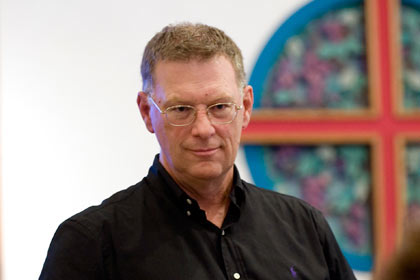Back in 1962 Rachel Carson wrote Silent Spring, a book that exposed the ominous silence caused by the dearth of songbirds returning to northern climes in the Spring. Her book exposed the toxic effects of DDT on all kinds of fragile life forms, and in doing so sensitized the conscience of the nation toward our environmental peril and responsibility. Today we are experiencing another kind of silent Spring, but one that is equally ominous. It is the silence of evangelicals concerning the egregious character and conduct of the president of the United States. It is as if evangelicals have suddenly lost their capacity for moral outrage, lost touch with their purported allegiance to biblical values and virtues.
Let me speak frankly. Not everything the Trump administration has done has been bad. But Donald Trump’s compulsive lying, his apparent incapacity for contrition, his narcissism, his incivility and bullying tactics, his unvarnished hatred for those who thwart his aspirations, his glorying in excess . . . all these things are not just alien to the Christian faith. These spiritually alarming qualities are actually the antithesis of what Jesus modeled and taught. Such moral and spiritual deficiencies are, in short, anti-Christian. It is impossible for any serious evangelical ever to commend such deeply flawed character traits. Evangelicals teach against them all in their churches and homes.
But most seem prepared to tolerate them in Donald Trump. He is the intriguing exception. How do we account for this free pass Trump gets from his evangelical supporters? How did he acquire this Teflon immunity from any real standard of moral accountability? How, for example, can the president of Liberty University grant Trump an honorary doctorate, and rhapsodize that he is a “dream president,” but not call him out on his stunning desecration of evangelical moral ideals on a daily basis? How do we explain this evangelical silent Spring?
Sadly, the explanation appears readily at hand. Trump provides a conduit to political power for evangelicals. So they hold their nose in the face of his odious behaviors and vacuous character. They look the other way as he sows division in the nation, and creates hatred and hostility where the fabric of the nation was once stronger and more united. They smile as he arrogantly declares his shallow understandings of greatness and success.
Evangelicals are complicit in all of this because they have, either knowingly or unknowingly, embraced the dangerous ethical theory of consequentialism. This approach to the moral life assumes that a good end justifies dubious means. Corruption in the short-term can be justified if it holds promise of a greater gain in the end. Lying and deceit are not so serious if they are the necessary price to pay to, say, get a vote-tipping conservative judge on the Supreme Court. A smart person won’t touch the goose that lays the golden egg.
This is where evangelicalism appears today. From a moral perspective, it’s a very dangerous place to be. And that’s for two reasons. The first is that invariably such complicity erodes a community’s own moral sensibilities and consciences. Over time, the outrageous and deeply-concerning behaviors and values of such a President are subtly normalized in the evangelical subconscious. There is a slippery slope that slides downward from outrage to tolerance to amusement and finally to imitation. In the language of Scripture, we are speaking of the risk of a seared (hardened, desensitized) conscience. Once conscience dies, it’s hard to resuscitate. The evangelical community, in many ways so thoroughly adapted to popular American culture, may already be further along that slippery slope than many nostalgic evangelicals realize. We may actually be more like Trump than we would like to admit. After all, you can tell quite a bit about people’s values by what they are prepared to tolerate. You learn a lot about the occupants when the room gets quiet.
The second reason why failing to speak out against Donald Trump’s behavior and character is dangerous for evangelicals is that it will eventually come back to bite them. No one can seriously digest the Book of Proverbs and think that people can escape unharmed from alliances with corrupt figures. Political winds shift, and in time there will be a reaction against Trump politics. When that day comes, evangelicals will be held accountable for their collusion with him, and their complicity with all that his administration did and stood for. The evangelical community in that day will be damned by association, and will have lost the moral right to speak prophetically to the nation.
This is no longer about whether Trump was a better or worse choice than Hillary Clinton. It is not about whether the Democratic agenda is better or worse than the Republican. It is not about whether Nancy Pelosi or Chuck Schumer are endearing figures. It is about whether evangelicals are willing to speak truth to power as it exists today, and risk their own fragile hold on such power for themselves. Evangelicals should walk away from their Machiavellian practices and speak out for what is good and true, even when it seems terrifying to do so. Whether or not they will hold on to power is not their ultimate concern. Doing the right thing is. We have had a silent Spring. May evangelicals find their true voice soon.

Comments are closed.